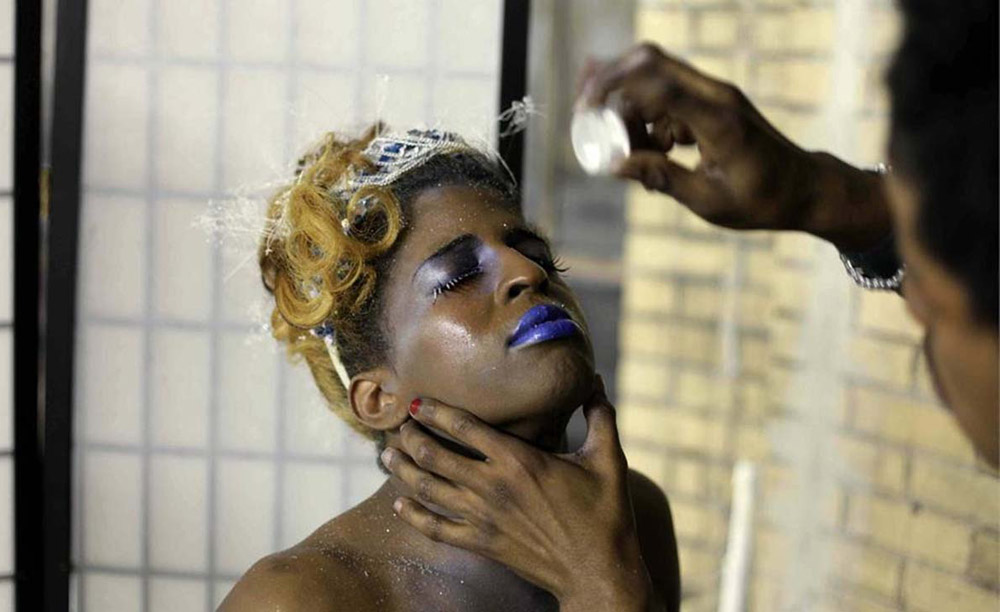There’s an easy and obvious happy ending to “Pier Kids,” but it speaks volumes that Elegance Bratton doesn’t stop things there. After revisiting his subjects five years after first finding them on the Christopher Street Pier in 2011, where he himself lived as a homeless youth for some time, he may see life turn out to be okay, or even better than that for at least one of the three people he follows, yet to offer an audience comfort about the harsh reality faced by gay and trans African-Americans would be inherently dishonest and it shouldn’t be a spoiler to say that when his camera drifts towards a day of resistance protest, it captures the fact that while everything can change for specific individuals within the community with time, little has in the overall struggle to be respected and accepted by the larger world.
It takes a little while for “Pier Kids” to come into focus, but once it does, it’s quite powerful. Both technically and emotionally, there’s quite a rawness to what Bratton first captures in 2011, introducing audiences to a variety of young men and trans women who have found a safe space on the pier, well-known as a haven since the days of Stonewall and the birthplace of the ballroom scene. People drift in and out of the viewfinder of the digital camcorder the filmmaker holds like the waves only a few feet away from where he stands, but three stand out – Deseem Irby, who ended up on the pier after being rejected by his biological mother upon coming out, making it the second time following his effort to reunite with her after being put up for adoption, his friend Jusheem “Casper” Thorne, and Krystal Labeja Dixon, self-describes as a “woman of trans experience,” who makes ends meet as a lady of the night.
Initially, the panorama of experience illuminates the dangers of the pier where police are not there to serve and protect them, sex becomes the currency of choice and johns don’t always feel obliged to pay, often resulting in physical abuse and the need to shoplift from grocery stores to survive. However, with no one but each other to rely on, you see the family that forms and shares dinners at the local pizzeria, with Bratton eventually able to draw a stark contrast between the strong bond between the clan that emerges out of necessity and the far more tenuous ties of blood through a visit Krystal makes to visit her mother where she is continually misgendered and made to feel she is anywhere but home.
Still, “Pier Kids” is anything but tidy and Bratton admirably resists drawing conclusions when life remains so precarious for those he tracks, making its 2016 coda all the more powerful as it doesn’t put a fine point on things so much as present a world where over every mountain there seems to always be a larger one just behind it, making the view from the streets humbling, daunting and essential to understanding how much further there is to go to bring about true acceptance in larger society and how much strength to take on the climb has come from the community built on accepting each other.
“Pier Kids” will be available to stream in America through QFest St. Louis from June 19th through 28th and in British Columbia through DOXA from June 18th through 26th.




